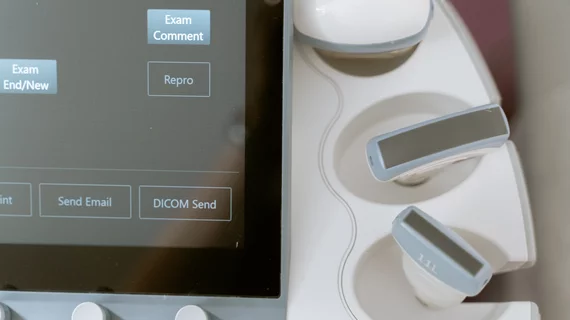2 ultrasound AI systems cleared for market
The FDA has approved an AI tool for speeding thyroid sonography workflows while, across the big pond, the European Union has OK’d an AI-based ultrasound device that guides nerve blocking as a form of local anesthesia.
Edmonton-based Medo announced the U.S. go-ahead for its Medo-Thyroid May 6. The product uses algorithms to automatically review scans of the thyroid gland, calculating relevant measurements and classifying any nodules with the American College of Radiology’s TI-RADS system.
The company says the product breaks new technological ground with various features, including a module for cross-referencing exams from various imaging modalities.
Meanwhile U.K.-based Intelligent Ultrasound Group earned CE Mark status in April for its ScanNav PNB, which supports nine common peripheral nerve blocks.
The company says the product plugs in to anesthesiology ultrasound machines and will be sold as a standalone device with embedded AI software.
Intelligent Ultrasound also says it’s currently working toward FDA approval and will seek to integrate ScanNav in ultrasound machines from various manufacturers.

